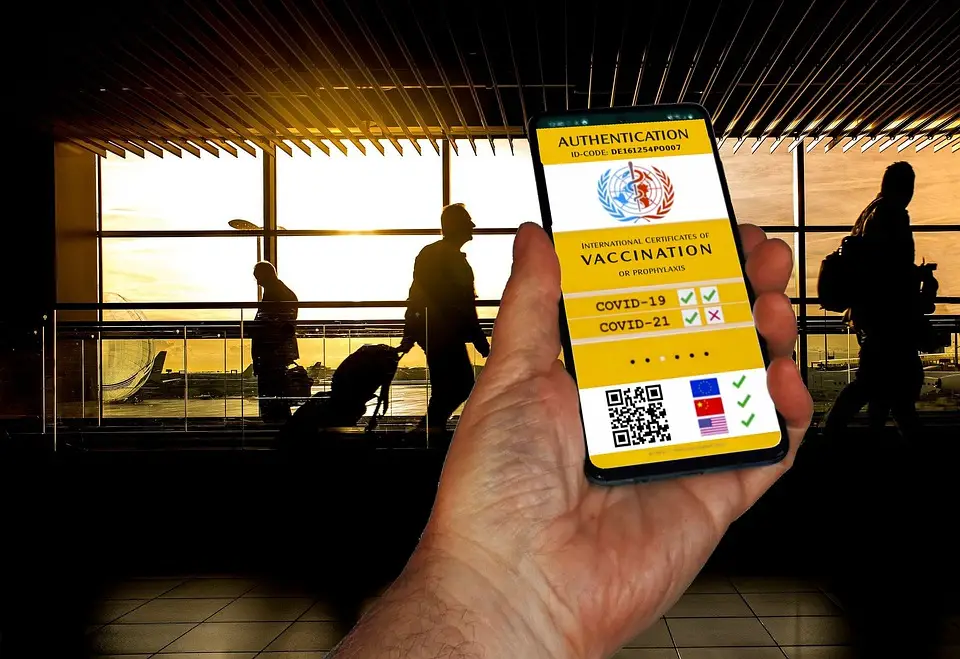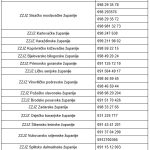As Poslovni Dnevnik writes, the current situation with the coronavirus pandemic was commented on for HRT by the Deputy Director of the Croatian Institute of Public Health, Ivana Pavic Simetin, epidemiologist Ozren Polasek and the Chief of the Istrian Civil Protection Directorate, Dino Kozlevac.
“Mortality is always late in relation to the incidence of the disease, so the number of falls in mortality isn’t so obvious, although we can see it in some indicators. The incidence of the disease has definitely been declining since April the 18th when things peaked and when we had more than 530 daily average cases of infection per million inhabitants. Yesterday that number stood at 320, so we’re recording a continuous decline,” said Ivana Pavic Simetin.
“This shows that the measures are working and that we’re preparing well for the tourist season,” noted Ivana Pavic Simetin, adding that the death rate will also begin to fall.
She said that Croatia’s position when it comes to vaccination against the novel coronavirus with both doses of AstraZeneca vaccine hasn’t changed and that, as we also reported, there will be enough for both doses despite the EU’s contract with AstraZeneca expiring.
“The interval is twelve weeks between the two doses of vaccination with the AstraZeneca vaccine, which has allowed us to vaccinate people with the first dose of this vaccine from February until now, there are only a few people who have already been vaccinated with two doses of this vaccine,” she said.
“The situation has been stable for several weeks now, with a constant decline. But we aren’t entirely happy with the situation, people with severe symptoms still end up in the hospital and this burdens our system. We had 80 people in hospital recently. Mortality is present almost daily. Things are going well, but we mustn’t give in to pressure and open up again too soon, that’s the only danger. We believe that things will be okay in June and July,” said Dino Kozlevac, adding that the situation with vaccination in Istria is good.
“The interest has been great from the beginning and it’s only growing every day. As of two days ago, we vaccinated about 50,000 people with the first dose and about 13,000 people with the second dose. The organisation works perfectly at 11 points for mass vaccination, and the action of vaccinating tourist workers is underway,” said Kozlevac.
“Last week, 17,798 doses arrived and all of them were administered. We’re satisfied and that’s the key, I expect that in the coming weeks we will vaccinate 50 percent of the adult population and that’s the right path to go down,” he added.
Epidemiologist Ozren Polasek tried to explain what is being achieved by these rehearsal events and gatherings.
“Here we can obtain the most interesting information about how the virus spreads in more or less controlled conditions. Namely, when you find someone who tests positive, you can only ask them about who they’ve been exposed to in the past, and they might not remember everyone. At these experimental gatherings, we’re primarily interested in how much two doses of the vaccine protects a person, because autumn and next year depend on that,” said Polasek.
“In the case of recovery from the disease, covid passports are valid for six months, in case of vaccination, they have no expiration date,” he added.
Ivana Pavic Simetin says that we currently have three components of the so-called covid-passports – vaccination, recovery and negative PCR or antigen test.
“As for vaccinations, for now these passports don’t have a shelf life, but in case of recovery following contracting the actual illness, they’re valid for six months,” she added.
For all you need to know about coronavirus specific to Croatia, including travel, border and quarantine rules, as well as the locations of testing centres and vaccination points across the country, make sure to bookmark our dedicated COVID-19 section and select your preferred language.











